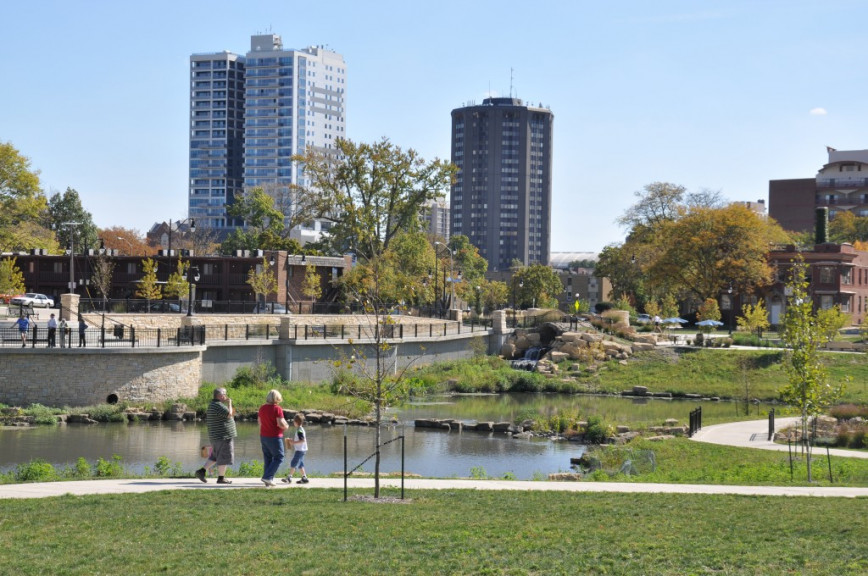New Champaign program uses ambassadors, not police, to address resident concerns

The Neighborhood Ambassadors Program is intended to address residents' concerns without involving police. Photo source Champaignil.gov
In February, the Champaign City Council approved the creation of a Neighborhood Ambassadors Program – a program that will hire city workers to respond to residents’ concerns without involving the police.
These workers – called ambassadors – will be sent to neighborhoods as needed to be extra eyes on the street. They will act as liaisons between residents and the city.
The city’s Neighborhood Services Department will lead the program’s creation. The program will consist of four ambassadors and a supervisor.
The ambassadors’ presence in the community may prevent crime, said Neighborhood Services Director Kerri Wiman.
“By having more ambassadors and a supervisor available throughout the community,” Wiman said,” whether walking or driving or participating in community events, that and of itself, we think, will have a positive impact on the amount of crime in our community.”
Neighborhood Relations Manager John Ruffin said the program will be residents’ first point of contact with the city government.
“For a lot of folks, this will be that first contact you have with the city government,” Ruffin said. “We want to make sure that it’s positive contact to the highest degree possible.”
Ruffin said the ambassadors will build trust within the community by working with volunteers in neighborhoods and helping these neighborhood volunteers create solutions to their problems.
He said the ambassadors will talk to diverse members of the community, so they must be able to adapt to whom they are speaking to.
“One day, you might be talking to a homeless person,” he said. “The next minute, you might be talking to the mayor. The next minute, you might be talking to a student from the University.”
The ambassadors will go through 80 hours of training where they will learn de-escalation techniques, motivational interviewing and first aid skills, among other things, Ruffin said.
Wiman said the ambassadors are not an extension of the police department, so they won’t be responding to police calls.
“If there's a call for a crime issue, that would be handled by our police department,” she said. “Part of our goal, though, is having more eyes and ears out in our community. Just more people seeing something and saying something.”
But Ruffin said residents can reach out to the ambassadors before contacting the city council or police department.
“There are a lot of occasions where you want to send somebody with a gun,” he said. “But there might be some occasions where you want to just engage the government, with somebody without a gun, who can provide information, resources, support, and this is that game.”
The program is expected to start in May.

